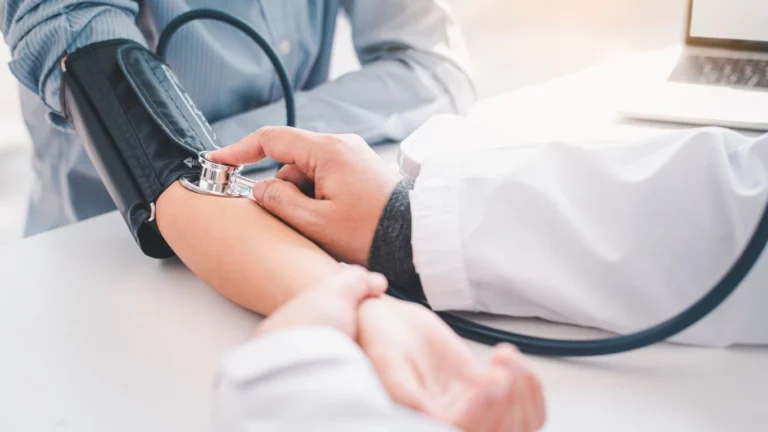Does Chewing Slowly Help GERD? Discover the Surprising Benefits
As a GERD expert, I’ve seen countless patients struggle with managing their symptoms, often seeking simple lifestyle changes to help with their discomfort. One question I often get asked is, “Does chewing slowly help GERD?” This is a great question, as small adjustments like this could play a significant role in alleviating heartburn and reflux. If you’ve ever dealt with the burning sensation of acid reflux, you know how annoying it can be. What if a simple habit like chewing more slowly could make a difference? Let’s dive into this topic and explore the connection between chewing and GERD, from personal experience and scientific insight.
Does Chewing Slowly Help GERD? Understanding the Impact on Digestion

When it comes to GERD (gastroesophageal reflux disease), the way we eat is just as important as what we eat. Many of us have probably heard that chewing slowly is important for digestion, but did you know that it can also play a crucial role in managing GERD symptoms? Slow chewing helps to break down food into smaller particles, making it easier for the stomach to digest. This may seem like a small thing, but it can actually have a big impact on your digestive health.
As a GERD expert, I always emphasize the importance of paying attention to how we eat, not just what we eat. I’ve witnessed firsthand how small changes, like chewing your food slowly and mindfully, can help reduce symptoms like heartburn, regurgitation, and bloating. These are common symptoms many people with GERD face. By taking time to chew each bite thoroughly, you give your body a head start in the digestive process.
The Science Behind Chewing and GERD
Let’s talk about the science behind chewing slowly and how it affects GERD. When we chew food properly, our saliva mixes with it, which begins the process of digestion. Saliva contains enzymes that help break down carbohydrates, and this can ease the workload for the stomach. For those with GERD, this is key because it can help prevent the stomach from producing too much acid, which could otherwise lead to reflux.
Additionally, the act of chewing slowly can reduce the amount of air we swallow. Swallowing air, also known as aerophagia, can lead to bloating, a common issue for GERD patients. Bloating increases the pressure in the stomach, which may force acid up into the esophagus, leading to painful heartburn. So, in a way, by chewing slowly and being mindful of how we eat, we’re actively working to prevent one of the triggers of GERD: bloating.
Does Slow Chewing Relieve GERD Symptoms?

From my personal experience and feedback from patients, the answer is often yes—chewing slowly can relieve GERD symptoms for many individuals. When I first suggest this practice to my patients, I often see a light bulb go off. People are so used to eating on the go, eating quickly, or eating while multitasking, that they don’t realize how much they’re compromising their digestive health. Taking the time to chew food thoroughly can be a game-changer.
In fact, chewing slowly can help in several ways:
- Prevents overeating: Chewing slowly gives your brain time to catch up with your stomach, which helps you feel full with less food. Overeating is a common GERD trigger.
- Reduces acid reflux: When you chew food slowly, you reduce the chances of swallowing large chunks of food that may irritate the stomach lining and lead to reflux.
- Improves nutrient absorption: Properly chewed food is easier to digest, which means your body can absorb nutrients more efficiently, improving overall health and reducing digestive stress.
Real-Life Experience: How Chewing Slowly Helped Me Manage GERD
Now, let me share a little of my personal experience with you. A few years ago, I noticed that my own GERD symptoms were flaring up more often than usual. It was frustrating because I knew all the right things to do, but I was still experiencing discomfort. That’s when I started focusing on my eating habits. I realized that, like many of my patients, I was eating too quickly and not paying enough attention to how I was chewing my food. After making a conscious effort to chew more slowly, I noticed a significant reduction in symptoms like heartburn and bloating.
This is why I’m such a strong advocate for chewing slowly. Not only does it help with GERD symptoms, but it also makes the entire eating experience more enjoyable. You can savor your food and feel more satisfied, which can reduce the urge to eat larger portions. As I’ve mentioned to many patients, sometimes it’s not about drastically changing your diet—it’s about making small, mindful adjustments to how you eat.
The Role of Mindful Eating in GERD Management

Mindful eating is a practice that ties directly into chewing slowly. It’s about being present in the moment while eating, focusing on the flavors, textures, and experience of eating. This practice can be incredibly beneficial for GERD patients because it helps you tune in to your body’s hunger and fullness cues. Over time, this can lead to more conscious eating habits and help reduce overeating, which is one of the main contributors to GERD flare-ups.
By combining slow chewing with mindful eating, you’re not only improving your digestion but also giving yourself a chance to reduce stress, which can also be a trigger for GERD. Many GERD sufferers experience stress-induced flare-ups, so taking time to eat slowly and focus on the meal at hand can help with relaxation and overall symptom management.
Final Thoughts on Chewing Slowly and GERD
Incorporating slow chewing into your routine may seem simple, but it can make a big difference when it comes to managing GERD. Whether you’re eating your favorite meal or just having a snack, taking the time to chew slowly can lead to fewer symptoms and a more pleasant eating experience. If you haven’t tried it yet, I encourage you to give it a shot. As I’ve seen in my own experience and with my patients, sometimes it’s the small, mindful changes that can have the biggest impact on digestive health. So, the next time you sit down to eat, remember: chew slowly and savor every bite.
The Role of Diet and Chewing Habits in Managing GERD Symptoms

As we dive deeper into the conversation about chewing slowly and its effect on GERD, it’s important to understand that this is just one piece of the puzzle. When we’re managing GERD, it’s essential to consider our overall eating habits, especially the types of foods we consume. However, combining slow chewing with a GERD-friendly diet can enhance the benefits and provide even greater relief from symptoms.
Over the years, I’ve worked with many patients who struggle with dietary choices that worsen their GERD symptoms. Foods like spicy dishes, fried foods, chocolate, and citrus can trigger acid reflux, and eating them quickly only exacerbates the problem. So, when you chew slowly, you’re not only aiding digestion but also giving your body a better chance to handle the foods you’re consuming. Pairing this with GERD-friendly foods can make a world of difference.
Chewing Slowly and Your GERD-Friendly Diet
Let’s talk about what it means to have a GERD-friendly diet. As I mentioned earlier, certain foods can trigger reflux. For example, acidic foods like tomatoes, citrus fruits, and coffee may make your symptoms worse. But when you chew slowly, you may find that you can better tolerate smaller portions of these trigger foods. Plus, the act of chewing helps release the right digestive enzymes that can ease some of the discomfort these foods bring. In my personal experience, combining slow chewing with a diet high in fiber-rich foods, like vegetables and whole grains, has helped many people find relief.
One thing I always recommend to my patients is to take the time to savor each bite of food. When you slow down and focus on your meal, you not only improve digestion but also avoid overeating, which is a huge trigger for GERD. Overeating puts pressure on the stomach and can lead to acid reflux. Slow, mindful eating allows your body to send the signals to your brain that it’s full, preventing the temptation to eat too much.
The Connection Between Stress, Chewing, and GERD
In addition to the physical act of chewing slowly, we can’t ignore the role stress plays in GERD. I’ve worked with countless patients who experience significant flare-ups when they’re stressed or anxious. You’ve probably heard the phrase “stress eating,” and for GERD sufferers, this can be a real problem. Eating in a rushed or anxious state can worsen reflux because it encourages you to swallow more air and eat larger portions. Chewing slowly allows you to slow down not just your eating but also your mind.
Personally, I’ve found that by taking a moment to breathe and center myself before meals, I can avoid the rush that leads to poor eating habits. When you’re not stressed, your body can focus on the task at hand: digesting food. This is another reason why combining slow, mindful eating with stress-reducing practices like deep breathing or relaxation techniques is a powerful way to manage GERD symptoms. It’s all about finding a balance, and slow chewing is a simple yet effective way to get started.
Are There Any Other Benefits to Chewing Slowly for GERD?

Now, you may be wondering: aside from helping with GERD symptoms, are there any other benefits to chewing slowly? The answer is yes! Slow chewing not only helps with digestion and reflux but also enhances your overall well-being in several ways.
One of the key benefits of chewing slowly is weight management. Over the years, I’ve learned that when people chew slowly and mindfully, they tend to eat less. When you eat too quickly, it’s easy to overeat because your brain doesn’t have enough time to catch up with your stomach’s fullness signals. But by taking your time, you give your body a chance to register that it’s full, which can help prevent overeating and ultimately support weight loss. This is important for GERD sufferers because maintaining a healthy weight can significantly reduce the pressure on the stomach and decrease the chances of reflux.
Chewing slowly also enhances your overall eating experience. Instead of scarfing down your meal in five minutes while watching TV or working, you can savor the flavors and enjoy the process of eating. Not only will this improve your digestion, but it can also make meals more enjoyable and satisfying. I often tell my patients that eating should be a pleasurable experience, not a chore, and chewing slowly allows you to connect with your food in a way that promotes overall health.
How to Incorporate Slow Chewing into Your Routine
If you’re interested in trying slow chewing for yourself, you might be wondering how to incorporate this into your routine. It doesn’t have to be difficult, and you can start by making small changes. Here are a few tips:
- Put down your fork between bites: This simple practice can help you slow down and focus on chewing each bite properly.
- Take smaller bites: Cutting your food into smaller pieces encourages slower eating and gives you time to chew thoroughly.
- Focus on your food: Try to eliminate distractions during meals. Put away your phone, turn off the TV, and focus on the flavors and textures of your food.
- Practice mindfulness: Take a few deep breaths before eating to calm your mind and body. This will help you avoid stress eating and improve digestion.
By incorporating these simple changes into your eating habits, you can start to notice the benefits of slow chewing almost immediately. It’s all about creating new, healthier habits that support your digestive health and overall well-being.
Is Chewing Slowly a Long-Term GERD Management Strategy?
When it comes to managing GERD, there’s no one-size-fits-all solution. However, slow chewing is a long-term strategy that can work in conjunction with other lifestyle changes. From my experience, people who consistently practice slow chewing often see improvements not only in their GERD symptoms but also in their overall health.
It’s important to remember that GERD is a chronic condition, and it requires ongoing management. Slow chewing is just one piece of the puzzle, but it’s a small and simple change that can lead to significant improvements over time. The key is consistency—by making it a habit to chew slowly and mindfully, you can better manage GERD and enjoy meals without the fear of reflux or discomfort.
Chewing Slowly: A Simple Yet Effective GERD Management Strategy

As we come to the final part of this discussion, I want to revisit the powerful role that slow chewing plays in managing GERD. In the past couple of parts, we’ve discussed how chewing slowly improves digestion, reduces bloating, prevents overeating, and even helps with stress management. By now, you can probably see how this simple yet effective habit can be a game-changer for many people with GERD. But what about the long-term effects? Does chewing slowly really help with GERD in the long run, or is it just a quick fix?
In my experience, slow chewing is far more than a quick fix. It’s a long-term, sustainable strategy that can help people manage GERD effectively. The key to managing any chronic condition is consistency, and chewing slowly fits perfectly into that framework. It’s a manageable, low-cost change that has a big impact. Over time, you’ll notice not just a reduction in GERD symptoms, but also an improvement in your overall digestive health and even your eating habits.
Building Long-Term Habits for GERD Relief
When managing GERD, we often think about the big changes—medications, dietary modifications, or even surgical interventions. But sometimes, the most effective changes are the small, everyday habits. As I’ve mentioned in previous sections, chewing slowly is one of these small but powerful habits. It’s not a “cure” for GERD, but it’s a helpful practice that can be combined with other strategies for long-term relief.
One of the things I always remind my patients is that managing GERD requires a holistic approach. Slow chewing, when paired with a balanced GERD-friendly diet, regular exercise, proper stress management, and the right medications, can help people live their best lives without constantly being held back by reflux. But the beauty of chewing slowly is that you can start today, and you don’t need any special equipment or complicated instructions to make it work. Just a little bit of awareness and effort goes a long way.
How Slow Chewing Affects the Esophagus and Stomach
To understand why slow chewing is so important for GERD management, we need to take a step back and look at the anatomy of digestion. When food enters the stomach, it’s broken down by stomach acid and digestive enzymes. For people with GERD, the lower esophageal sphincter (LES)—the valve that prevents stomach acid from flowing back into the esophagus—may be weakened or not function properly. This results in acid reflux, which is the hallmark symptom of GERD.
By chewing food slowly and thoroughly, you reduce the amount of undigested food that enters the stomach. The more you break down your food during chewing, the less work your stomach has to do to break it down further. This can help reduce the amount of acid needed for digestion and ultimately lessen the likelihood of reflux. In my practice, I’ve seen that many GERD patients who start chewing slowly report fewer incidents of heartburn and less discomfort after meals. It’s a simple adjustment, but it has a big impact on your digestive system’s ability to manage food efficiently.
Can Slow Chewing Really Prevent GERD Flare-Ups?

Now, let’s get to the heart of the matter: Can slow chewing really prevent GERD flare-ups? The short answer is: Yes, it can. However, it’s important to remember that GERD is a chronic condition, and while slow chewing is an effective tool, it’s just one piece of the puzzle. If you’re relying solely on slow chewing and ignoring other GERD triggers, you may not see the full benefits. That’s why I always encourage my patients to approach GERD from multiple angles.
For example, while slow chewing helps reduce the amount of acid reflux triggered by food, other factors like stress, alcohol, smoking, and certain medications can also contribute to GERD flare-ups. In my experience, the most successful GERD management strategies are those that take into account all the potential triggers, including lifestyle factors like sleep and physical activity. Chewing slowly is a great start, but combining it with other healthy habits will give you the best chance of keeping your GERD under control.
Practical Tips for Chewing Slowly and Effectively
If you’re ready to make slow chewing a regular part of your routine, here are some practical tips that I’ve found to be helpful for my patients:
- Set a timer: Start by setting a timer for 20-30 minutes during mealtime. This can help you pace yourself and avoid rushing through your meal.
- Chew each bite thoroughly: Aim for about 20-30 chews per bite. This will help break down food properly and allow your digestive system to work more efficiently.
- Practice mindfulness: Focus on the flavors, textures, and aromas of your food. This not only helps slow you down but also makes eating a more enjoyable experience.
- Take small bites: This can make it easier to chew slowly and prevent you from swallowing large chunks of food that may aggravate your GERD.
By incorporating these tips into your meals, you can make slow chewing a natural part of your routine. Over time, this will become second nature, and you’ll likely see noticeable improvements in your digestion and overall GERD symptoms.
Additional Resources and References
For those looking for more information on GERD management, I recommend checking out the following resources:
- GERD Symptoms and Causes – Learn more about the common symptoms of GERD and what causes them.
- GERD-Friendly Diet – Explore dietary changes that can help reduce GERD flare-ups.
- Comprehensive GERD Management – A guide on how to manage GERD holistically with lifestyle changes, diet, and medications.
Disclaimer
While the information in this article is based on my personal experience and clinical observations, it’s important to remember that GERD affects everyone differently. What works for one person may not work for another. Always consult with your healthcare provider before making significant changes to your diet or lifestyle, especially if you have underlying medical conditions or are taking medications. This article is not intended as medical advice but as a general guide to understanding how slow chewing can help with GERD management.

Camellia Wulansari is a dedicated Medical Assistant at a local clinic and a passionate health writer at Healthusias.com. With years of hands-on experience in patient care and a deep interest in preventive medicine, she bridges the gap between clinical knowledge and accessible health information. Camellia specializes in writing about digestive health, chronic conditions like GERD and hypertension, respiratory issues, and autoimmune diseases, aiming to empower readers with practical, easy-to-understand insights. When she’s not assisting patients or writing, you’ll find her enjoying quiet mornings with coffee and a medical journal in hand—or jamming to her favorite metal band, Lamb of God.







